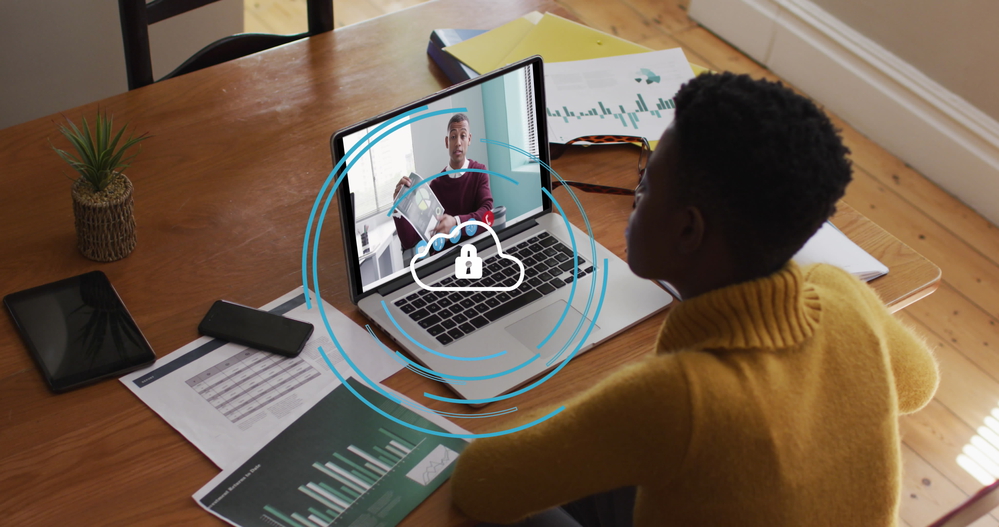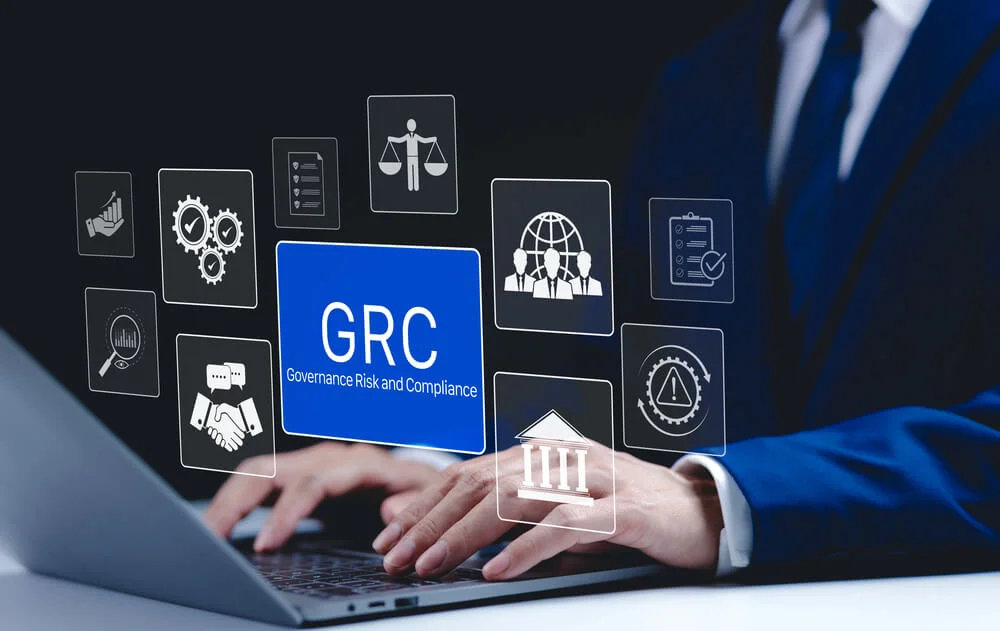Remote work used to be unheard of, but it has become prevalent in the workforce in recent years. With a work-from-home option comes the issue of how to deal with cybersecurity. As a business owner, you need to know how to maintain security when employees work remotely so information isn’t compromised.
Do You Know How To Maintain Security When Employees Work Remotely?

Security in the office and security at home are two different issues you have to directly address. When employees are in the office, managers and security cameras have eyes on them. Hardware is secure, networks are secure, and security measures are in place beginning at the router.
At home, employees are not as closely monitored. Attack surfaces become expanded the more employees are working remotely. Vulnerability shows up in chat platforms, webcam programs, shared networks, and Wi-Fi connections. As an employer, do you know how to manage all of this? Do you have a cybersecurity team specifically for remote workers? It’s time to dive deep so you can increase security among your at-home employees.
How Do You Maintain Cybersecurity for Remote Workers?
Don’t be afraid to send employees home for work. It’s a practice gaining traction in the professional world and there’s no reason, including cybersecurity, that you shouldn’t join in. There are several ways you can maintain cybersecurity and reduce cyber risks for your remote workers.
Use a VPN to Protect Information
A VPN, or virtual private network, allows employees to connect to the company’s internal network without worrying about prying criminal eyes. The VPN uses encryption to hide data such as an IP address, customer information, financial statements, and other sensitive documents. Employees should use VPNs on every company device, everywhere they log into the company network.
Stress to your employees the importance of keeping the VPN turned on, even when they are using their home Wi-Fi. It could be tempting to have more access to different applications that the VPN blocks, but turning it off could compromise important proprietary information.
Create a Culture That Assists in Remote Worker Security

A culture of security awareness is essential in maintaining security with remote workers. Annual or semiannual security conferences should occur, either in person or through video software. These conferences will reiterate security measures already in place, introduce new safety measures, and train employees on how to keep security as a top priority.
A written cybersecurity policy is another important step in how to maintain security when employees work remotely. The policy should cover:
- Managing permissions across the network
- Rules surrounding employer-owned devices
- Rules surrounding personal devices
- Guarding routers
- Onboarding and offboarding practices
- Storage guidelines
Each on-site and remote employee should thoroughly read and sign the policy. If there are policy changes, address them in the annual or semiannual conferences. If it is a more pressing issue, call a required, special meeting to address them.
Some employers have remote-work security plans already. It would be beneficial for a business owner to look over the plan regularly. Technology evolves so fast and security plans need to keep up to protect sensitive information.
Increase Passwords and Authentication Practices
The more tools your employees have, the more able they will be to keep data safe. Especially for remote workers, you should never be shy about requiring passwords for every application.
Each device should be password protected. The Wi-Fi network should have a password. The router should have a password. Any online account the employee logs into on the company device should have a unique password. There are a handful of guidelines for employees to create strong passwords:
- Use at least 10 characters
- Avoid including personal information such as names and dates
- Use a combination of lowercase and uppercase letters
- Add numbers and special characters
- Avoid repeated numbers or number sequences
Additionally, implement 2-factor authentication. This is one of the best practices for how to maintain security when employees work remotely. After submitting a username and password, the program requires a second piece of proof that it’s the employee logging in.
For example, the employee might get a text with a code to submit. Fingerprints, voice recognition, and facial recognition are other forms of 2FA. Another type of 2FA is a PIN or an answer to a security question. In many cases, 2FA is on the clock so the employee only has a certain amount of time to provide the code, answer, or personal information before the computer resets and requires a different type of 2FA.
Educate About Scams and Phishing Schemes
There are too many scams out there, but simply being aware is a step in the right direction of protection. Cybercriminals are experts at sending the right information at the right time to the wrong victims. Training helps employees spot phishing scams so your company does not become a victim. In most phishing schemes there is a link that, when clicked, unleashes vicious malware on the device.
To avoid this issue with remote worker security, send something unique to your company in every email. Ensure the employees know each other’s email addresses. Include in your cybersecurity policy a requirement that an employee call the sender of an email to confirm he or she actually sent a link before opening the attachment.
Secure Messaging Apps

Communication is an essential element of any business, but some employees don’t realize their messaging apps are begging for infiltration. WhatsApp, for example, wasn’t made for security to the degree your company needs it, but for easy communication instead. Your cybersecurity policy should be quite clear as to what messaging apps employees can use on devices that contain sensitive material.
With company-provided devices, the employer can block these apps. If employees are using their own devices for work, each cybersecurity conference should cover what is appropriate and not appropriate for messaging app use. Monthly emails can also reiterate the importance of keeping messaging apps on devices not used for work.
Understanding How To Maintain Security When Employees Work Remotely
Compyl software assists business owners in staying on top of security and potential risks. To understand more about how to maintain security when employees work remotely, request a demo today.




